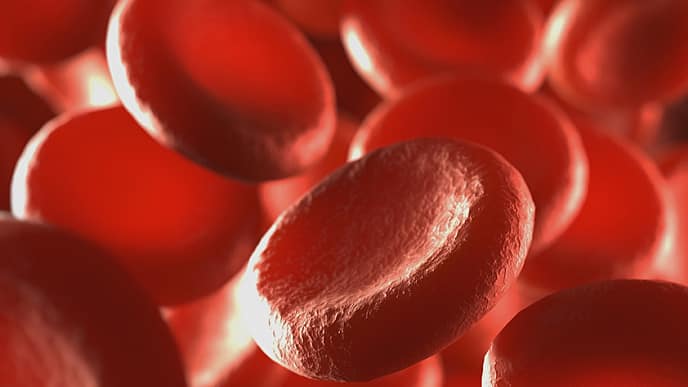How Anemia Affects Oral Tissue
Anemia occurs when your body does not create a sufficient amount of red blood cells. Because these cells carry oxygen throughout your bloodstream, anemia can keep the body from getting the oxygen it needs. This can lead to various symptoms, including fatigue, weakness, shortness of breath, and cold hands and feet.
When it comes to your oral health, anemia can have an interesting impact on your mouth. Some of these symptoms include:
- Paleness. Anemia can cause your gums to be pale, which some have labeled "anemia gums." Instead of a typical, healthy pink, the gums take on a faded or whiter shade of their standard color. This paleness can also impact the tongue and mucous membranes inside your mouth.
- Glossitis. Anemia can also cause inflammation of the tongue, known as glossitis. In glossitis with anemia, the tongue is typically a beefy red color, appears smooth and swollen, and feels sore and tender.
Chronic anemia can also put you at risk for other oral health issues, such as gum disease or tooth decay. If you notice any changes in the appearance of your tongue, gums, or surrounding tissue, let your dentist know immediately. These types of changes could indicate systemic problems or serious illness.
Anemia and Dental Treatment
If you have been diagnosed with chronic anemia, it might impact your dental treatment. Your dentist might recommend an antimicrobial rinse to help prevent gum disease or an antibiotic drug from reducing your risk of infection. If you undergo dental work or oral surgery, your dentist might need to adjust treatment to prevent excessive bleeding, such as altering the types of tools used. Patients with severe anemia might even require oxygen during treatment to compensate for the lack of oxygen in the bloodstream.
Overall treatment for your anemia depends on the type of anemia you have. Some types of anemia result from genetics or chronic diseases and will require a team of medical professionals to assess your needs and relieve your symptoms. More likely, your anemia is caused by a lack of vitamins or minerals:
- Iron-deficiency anemia. The most common type of anemia, iron-deficiency anemia, occurs when your body has a shortage of iron, which the bone marrow needs to make hemoglobin for red blood cells. Treatment usually includes changing your diet or taking iron supplements.
- Vitamin-deficiency anemia. This type of anemia occurs when your body lacks the folate, vitamin C, or vitamin B-12 needed to produce healthy red blood cells. Some people consume enough B-12 but cannot absorb the vitamin, which is known as pernicious anemia. Treatment usually involves increasing these nutrients in your diet or taking dietary supplements. If you have trouble absorbing vitamin B-12, you might require vitamin B-12 shots.
If you notice pale gums or other oral anemia symptoms, make an appointment with your dentist or physician immediately. It could be a sign of an iron deficiency or vitamin deficiency, and you'll want to take steps to adjust your diet and protect your oral health as soon as possible.
Oral Care Center articles are reviewed by an oral health medical professional. This information is for educational purposes only. This content is not intended to be a substitute for professional medical advice, diagnosis or treatment. Always seek the advice of your dentist, physician or other qualified healthcare provider.
ORAL HEALTH QUIZ
What's behind your smile?
Take our Oral Health assessment to get the most from your oral care routine
ORAL HEALTH QUIZ
What's behind your smile?
Take our Oral Health assessment to get the most from your oral care routine















